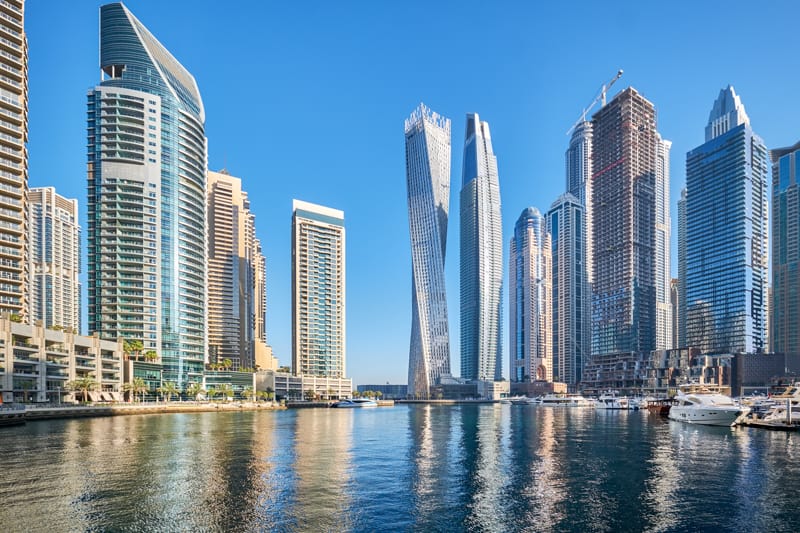Dubai: With free zones in Dubai offering up to six months’ rent postponements, private landlords are now under pressure to match these incentives or even better them. At the very least, private landlords would be “forced” to consider rent payments via installments – something the free zones will now allow as per Saturday’s decision.
These free zone incentives will apply for the period from April 1.
Earlier, DMCC, the operating company for Jumeirah Lake Towers (JLT) cluster had announced a 100 per cent waiver on all office sharing permit fees and on company “reinstatement”. Plus, there is a 30 per cent discount at the time of license renewal. DMCC has 17,000 member companies on its rolls.
“Dirham for dirham, free zones in Dubai/UAE now have far more competitive rates on leasing/co-working spaces than what private operators, local and global, offer,” said Jitendra Gianchandani, Chairman of JCP, a consultancy. “It’s especially true for start-ups.
“There are 19 free zones in the UAE that offer 57 low-cost set up options for startups to test the waters. Then there is the other factor – free zones issue license plus space while privately-owned business centres can only provide space, phone facility and P.O. box… but not the licence.”
Who’s got the best offers?
According to JCP data, the first-year costs start from Dh8,810 with zero visas at Ajman Media City to Dh81,395 with six visas by DMCC. (These are before the waivers announced by DMCC late last week.) “Dtec (Dubai Technology Entrepreneur Campus), a part of Dubai Silicon Oasis, offers the cheapest option – the first year at Dh20,395 (and subsequently Dh16,075) for startups in IT-related services,” said Gianchandani. “Kizad in Abu Dhabi offers space at Dh15,550 for the first year and Dh13,300 for the subsequent years.
“Many free zones don’t require personal presence and audits, saving investors time and cost.”
And again, that constitutes a big plus in keeping costs down. When businesses here and elsewhere are staring at a future where any silver linings matter, saving on start-up costs do matter.
But tenants at the free zone are waiting for further clarifications on Saturday’s announcement, in particular how these will benefit existing tenants. Many of the key offers are targetted towards relatively newer tenants, according to an owner of a major warehousing operator.
Escalate the pressure
With Dubai Free Zones setting the marker on the next six months, what will – or what can – private landlords do? Some had already come out with three-month waivers, and which could be extended at the time of the next renewals.
But market sources say that by offering cuts to licensing fees and other fees, public sector owners of commercial spaces have an advantage. With more office space coming up under the free zones, the new cuts could compel businesses to head there. At a time of indifferent demand for space, even the slightest cost benefit passing on to tenants make a difference.
“Large free zones in Dubai such as DMCC have historically been competitive in its flexi-desk/co-working offering while also including licensing costs,” said Prathyusha Gurrapu, Head of Research and Advisory at Core, the consultancy.
“This also acts as an “incubator” and helps retain clients within the free zone when they eventually expand towards conventional office spaces.”
Co-working
Until the COVID-19 crisis, co-working was the hottest thing going in the UAE’s commercial rental space. There was also the entry of WeWork, the US co-working uber-brand, into Abu Dhabi and Dubai.
“Across global operators, the rates vary widely based on location, size of the office/number of desks, value-added services and the lease term,” said Gurrapu. “Typically, global operators’ range from Dh1,500-Dh3,500 for a desk a month.
“The overall co-working/flexi-space market is getting competitive across free zones (nearly 40 in the UAE) and onshore areas with many incentives and community benefits being offered.”
Easing the job loss risk
In a pioneering move, Dubai Free Zones Council has allowed “temporary” job contracts that allow the free movement of workers between companies operating in the free zones for the rest of the year. These advantages can benefit those workers seeking better job opportunities, and those who have been granted unpaid leave by facilitating their re-employment in jobs within Dubai.
Small business focussed
The package of incentives announced by Tecom – the operating company for Internet and Media cities, among others – Dubai Development Authority place small and mid-sized businesses at the centre.
These tenants can postpone payments, while new ones can “postpone their lease periods and cancel their registration fees for a period of six months”.
They can also cancel any fine on expired licenses and other admin fees.
“The current annual license renewal fee for small businesses at Media City Business Centre is Dh44,000 and upwards,” said a tenant. “If these are brought down, even for a fixed period, it can bring about savings… especially in an industry that has a bleak outlook for the near-term. There will be significant loss of income this year.”
In a statement, Malek Sultan Al Malek, Director-General of Dubai Development Authority (DDA) and Group CEO of Tecom Group, had said: “Over the last 20 years, we have managed to build a sustainable economic sector, and we will continue to provide all the necessary support to our partners and investors to tackle the consequences of the current global crisis.”
Will – or more to the point, can – landlords in the UAE match up?
All rights reserved to the initial publisher for Gulf News.
Collected and published by Arms &McGregor International Realty editorial team.

